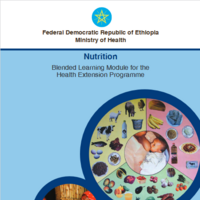Search
Books+
Searching 1,730 books
Search related to the career Dietitian
Skills Required to Become a Dietitian:
1. Knowledge of Nutrition: A strong understanding of nutrition principles, including macronutrients, micronutrients, dietary guidelines, and the impact of nutrition on health.
2. Assessment and Evaluation: The ability to assess and evaluate individuals' nutritional needs, dietary habits, and health conditions to develop personalized nutrition plans.
3. Dietary Planning: Proficiency in creating well-balanced and individualized meal plans that meet clients' nutritional requirements and align with their health goals.
4. Medical Knowledge: Familiarity with medical conditions and their nutritional implications, such as diabetes, heart disease, food allergies, and gastrointestinal disorders.
5. Communication: Excellent verbal and written communication skills to effectively educate and counsel clients on nutrition-related matters, translating complex information into easily understandable terms.
6. Interpersonal Skills: The ability to establish rapport, build trust, and maintain a professional relationship with clients, working collaboratively to support their dietary changes.
7. Problem-Solving: Strong critical thinking and problem-solving skills to address clients' challenges, adapt nutrition plans, and provide practical solutions to promote behavior change.
8. Cultural Competence: Awareness and sensitivity to diverse cultural, ethnic, and socioeconomic backgrounds, ensuring the provision of culturally appropriate and inclusive nutrition advice.
9. Research and Evidence-Based Practice: Proficiency in interpreting scientific research, staying updated with the latest nutrition trends, and applying evidence-based practices in dietetic interventions.
10. Organization and Time Management: Effective organizational skills to manage caseloads, maintain accurate records, and prioritize tasks efficiently in a fast-paced clinical or community setting.
11. Continuing Education: Commitment to lifelong learning, staying abreast of advancements in the field, and pursuing continuing education to maintain professional competence.
12. Ethics and Professionalism: Adherence to ethical standards, confidentiality, and professional codes of conduct while providing evidence-based nutrition advice and maintaining professional boundaries.
These skills, combined with a formal education in nutrition or dietetics, practical experience, and successful completion of a dietetic internship or supervised practice program, are essential for becoming a competent and qualified dietitian.
Source: Various AI tools
Vocational skills
Searched in English.













